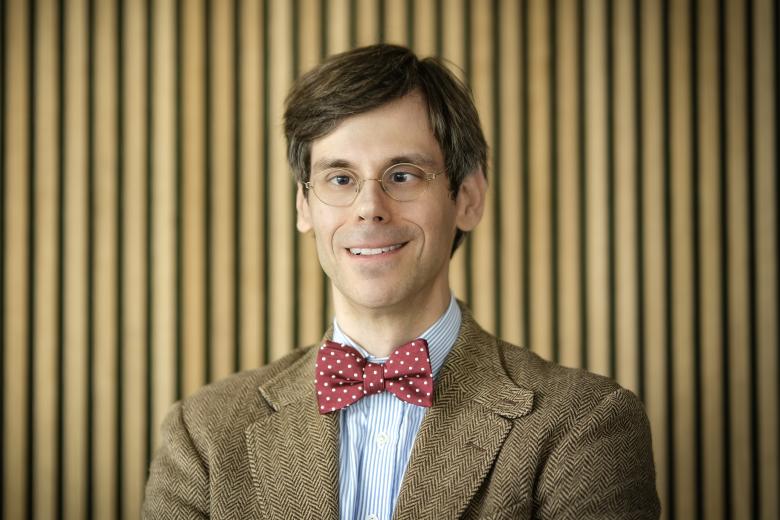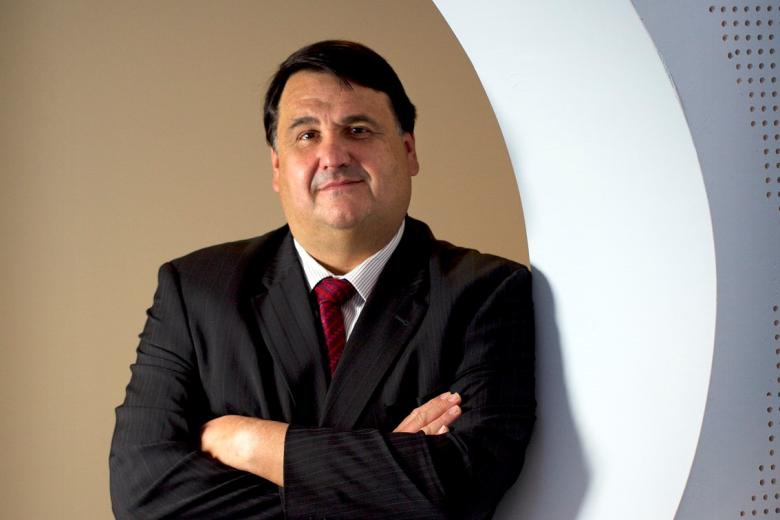Not everybody needs to be a professor
The Dutch binary system with a distinction between research-oriented education at research universities and professional higher education at universities of applied sciences is a good thing, says Martin Paul.
The strong international reputation of the Dutch Higher education sector is built on its binary system, allowing for differentiation of research agendas and facilitating optimal and differentiated access of students to higher education.
In the Netherlands we cherish the tradition of a binary system with 14 research universities and 37 universities of applied sciences. Some people call for Dutch universities of applied sciences to simply be called universities outside of the Netherlands. This discussion is often held with a reference to the English decision in 1992 to elevate polytechnics to university status, creating a homogeneous higher education sector.
In this context it is sometimes stated quite categorically that research universities should train students for academia and that the universities of applied sciences should train students for the employment market. In my view this is an unnecessary oversimplification. Research universities also train students for the employment market albeit for different positions. If you want to practise as a lawyer then you have to go to a research university in the Netherlands. If you want to be a physician then you have to go to a research university. If you want to be a nurse then, in most cases, you will attend a university of applied sciences. And if you want to do a technical study then you can either go to a technical research university or to a technical university of applied sciences but you will be trained for different professional levels. In a nutshell it is not that black-and-white at all.
On the website of Maastricht University we have summarised the differences between research universities and universities of applied sciences. Research universities consider the 'why'. Universities of applied sciences teach students the 'how'. Research universities are using an extensive research environment also for the educational process, at Maastricht University, as an example, in the context of problem based learning. Universities of applied sciences are teaching more market-oriented but do practice-oriented research as well. That is why they also offer practice-oriented masters courses. The Dutch higher education sector, therefore, covers the entire spectrum, with the idea of offering the best place for each student.
The binary system also feeds back to secondary schools,, as the admission criteria are also different. In the Netherlands, unlike in the United States, we have separate high schools catering to different student populations. You may only go to a research university if you have obtained the highest category of high school diploma. Other diplomas are targeting access to universities of applied sciences.
Why am I such a proponent of the binary system? I think that it is partly due to my German background. The German linguist, philosopher and educational reformer Wilhelm von Humboldt (1767-1835) introduced the term Bildung. According to Von Humboldt Bildung means that people not only acquire general knowledge but that they also develop their capacities to make moral judgements and think critically. According to Von Humboldt, there was a need for a university where people could do research independently and in academic freedom and where lessons would be given with scientific training as the main purpose. As such a university did not yet exist in his time he established one himself in 1810: the Humboldt University of Berlin.
Von Humboldt did of course realise that not everybody could go to a (research) university. He therefore tackled the entire spectrum of education. He standardised the German education system, introduced state exams and established a government ministry that monitored whether school textbooks satisfied the requirements.
Back to the current situation in the Netherlands. My main argument - a bit exaggerated is that not everybody needs to be a professor. That is also what Von Humboldt thought. Although he meant it in an exclusive sense: as far as Von Humboldt was concerned only the elite needed to go to a university. I do not agree with him in that respect. Universities must maintain their high academic standards but be accessible to everybody who makes the grade.
But this does not mean that universities of applied sciences are second rate. To the contrary: they make a significant contribution to the range of educational programmes available in the Netherlands. And they are of a high quality. Rather than focus on differences, I believe that a good collaboration between research universities and universities of applied sciences in is key to create a landscape where students can find their place.
In our binary system we must ensure good transfer opportunities. Somebody who first wants to focus on a profession and so initially goes to a university of applied sciences must subsequently be able to transfer to a research university easily and vice versa. The concept of associations between research universities and universities of applied sciences as has been implemented in the Flemish part of Belgium, may also be a good approach for our country to facilitate this.
All things being considered, I believe that the name given to higher education institutions is a side issue. My main concerns are the content of the study programmes, the broad range of programmes available, the Bildung and making higher education accessible to everybody. And in the Netherlands we are fortunate to have both the research universities and the universities of applied sciences to achieve this.
-
Overriding Mandatory Rules in International Arbitration: Balancing Business Freedom and State Interests
Imagine two companies from different countries enter a business deal. They pick a neutral country’s law to govern their contract and agree to arbitrate any disputes, thinking they can sidestep each other’s national courts. But what if one country’s law absolutely prohibits something in the deal –...

-
What is coercion?
According to classic economic thinking—and to common sense—if two parties agree to a deal, both are made better off, otherwise they would not have agreed. This idea is also reflected in contract law, at least in its basic form, treats consent as the cornerstone of a valid contract. If both sides say...

-
New Council year, quality agreements, DEI, alumni, internationalisation & human rights
Dear members of the UM Community,
The new academic year is in full swing, and so are UM’s representative councils. The newly elected University and Faculty Councils, as well as the Service Councils, are busy considering policy proposals and having discussions with the Executive Board, Deans, and...

